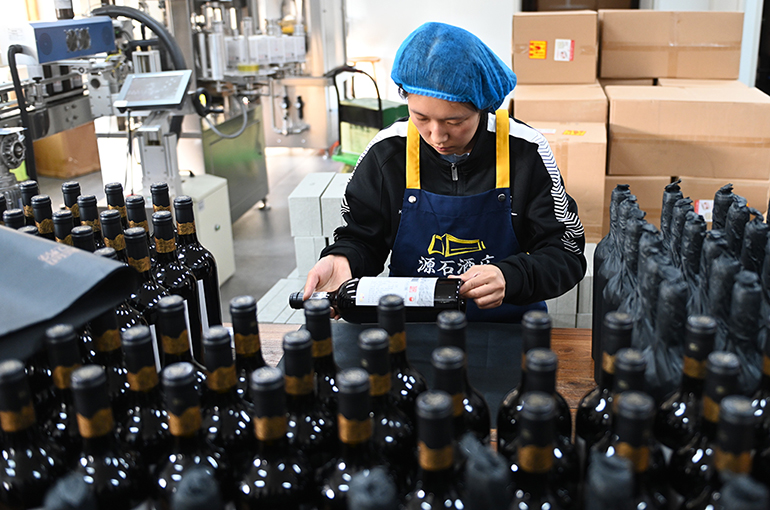 China’s Listed Wine Makers See First-Half Profits Trail Regional Baijiu Producer
China’s Listed Wine Makers See First-Half Profits Trail Regional Baijiu Producer(Yicai) Sept. 10 -- China's 10 listed grape wine companies performed poorly in the first half of the year, with their combined profit falling short of that of a single regional baijiu producer.
From January to June, only Yantai Changyu Pioneer Wine, Citic Niya Wine, and Dynasty Fine Wines Group reported a profit, according to the firms' financial disclosures. Five of the 10 generated less than CNY100 million (USD14 million) in revenue.
Changyu Pioneer, which owns the Changyu, Noble Dragon, and Golden Ice Valley brands, led the sector with revenue of CNY1.5 billion (USD206.4 million), a 3 percent decline from a year earlier. Its net profit dropped 16 percent to CNY190 million.
The gap between wine firms and other alcohol producers is widening. The 10 listed wineries posted total revenue of CNY2.5 billion and combined profit of just CNY120 million.
In contrast, Hebei Hengshui Laobaigan Liquor, a mid-sized baijiu company in northern China, recorded comparable revenue but earned more than double the profit. Among China’s 20 listed baijiu producers, Laobaigan ranks only 13th by revenue.
Wine also trails beer in profitability. The wine sector’s total revenue was lower than that of Guangzhou-based Zhujiang Brewery, which ranks sixth among listed beer firms, and was less than one-tenth of the revenue posted by industry leader China Resources Beer Holdings over the same period.
The second half is unlikely to bring a recovery. According to the National Bureau of Statistics, China’s wine production in July fell 25 percent year on year to 6,000 kiloliters. Output from January to July totaled 50,000 kiloliters, down nearly 27 percent from a year earlier.
Luxury Product With Weak Market Positioning
Sun Jian, general manager of Changyu Pioneer Wine, said at a recent shareholders’ meeting that wine consumption, as a non-essential good, has seen a "cliff-like" decline during unfavorable economic conditions.
He added that limited investment in product development, sales channels, and marketing has further marginalized wine in the domestic market.
Zhang Haixiao, founder of wine warehousing firm Yunjiucang, said part of the demand contraction stems from poor consumer education across the industry.
Zhang noted that wine should be presented as part of daily life and personal expression, but current educational approaches feel like "knowledge exams," which distance consumers from the enjoyment of wine.
Unlike baijiu, which benefits from its strong social attributes, and beer, which holds mass-market appeal, wine occupies an awkward position, Zhang added. He said merchants have struggled with both market positioning and brand development.
Yin Kai, founder of liquor branding consultancy Chaoyinhui, told Yicai that after years of decline, the likelihood of a further steep drop in China’s wine market is low.
Yin said the primary challenge now is for wine companies to survive this "industry winter" and find ways to bring new consumers into the market.
Editors: Tang Shihua, Emmi Laine